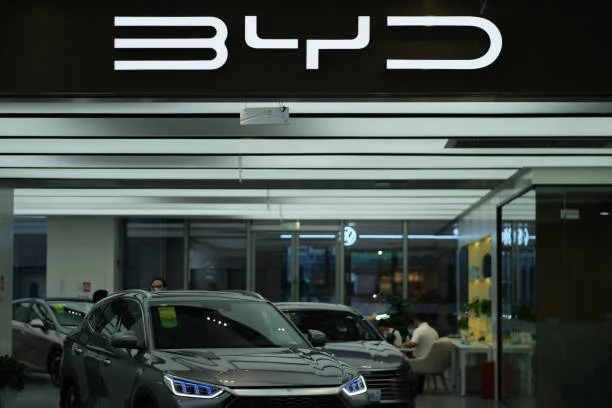The global electric vehicle market faced pressure in the past quarter. Chinese giant BYD beat leader Tesla by a significant margin of 60%. This reflects its competitive position and growing dominance in the electric car race and signals profound changes in the industry.
Tesla’s deliveries in Q2 totalled 384,122 electric vehicles, a significant 13% decrease compared to the same period last year. Notably, this marks Musk’s company’s second straight quarter of declining delivery volumes.
Tesla stock is down almost 30% year-to-date. Interestingly, in China, the world’s largest EV market, Tesla has shown modest but still positive growth of 0.8% year-on-year. Moreover, in June, Tesla sales in China saw a 16.1% uptick from May with 71,599 cars delivered from its local factory.
BYD, which started out as a battery manufacturer, showed phenomenal results — 606,993 electric vehicles were delivered in the same quarter, an impressive 42.5% annual increase. This is potentially a source of pressure for Tesla.
Liked what you read? This related post is another hidden gem.

Although competition from BYD and other Chinese manufacturers is certainly a pressure factor on Tesla, the problems of the American giant are more complex:
- Postponing purchases: The main Tesla models have been on the market for several years. Despite the restyling, consumers are waiting for more significant updates or new models, delaying the purchase
- Global slowdown in demand: After the initial boom, the electric vehicle market in some key regions for Tesla (Europe, USA) has shown signs of saturation or slowing growth. High interest rates also make credit purchases more expensive
- The Elon Musk factor: The market tracks the CEO’s public activities as a potential risk. This factor hurts the company’s outlook in the US and Europe
In addition, Donald Trump, whose campaign Musk actively funded, explicitly stated his intention to deprive Musk’s companies of multibillion-dollar government subsidies and benefits. These subsidies, both direct and through tax breaks for buyers, have been a major driver of EV demand in the US.
Trump’s promise to abolish the environmental credit system is a potential challenge. The system’s abolition will deprive Tesla of this considerable source of income and negatively impact its financial performance.
The future of Tesla’s leadership in the global electric vehicle market is facing challenges. The company needs not only to accelerate the updating of the model range and find new growth drivers, but also to seriously think about how to minimize the political risks associated with the figure of its founder. In light of these uncertainties, some investors may choose to diversify away from high-volatility growth stocks and instead consider high dividend stocks, which can offer more stable returns during turbulent market conditions.
The competition intensifies, with Chinese manufacturers showing significant growth. The era of Tesla’s unconditional dominance may be over, and influential new players are entering the arena, ready to dictate their own rules.
To explore all our latest posts in one place, be sure to visit the 2A Magazine.







